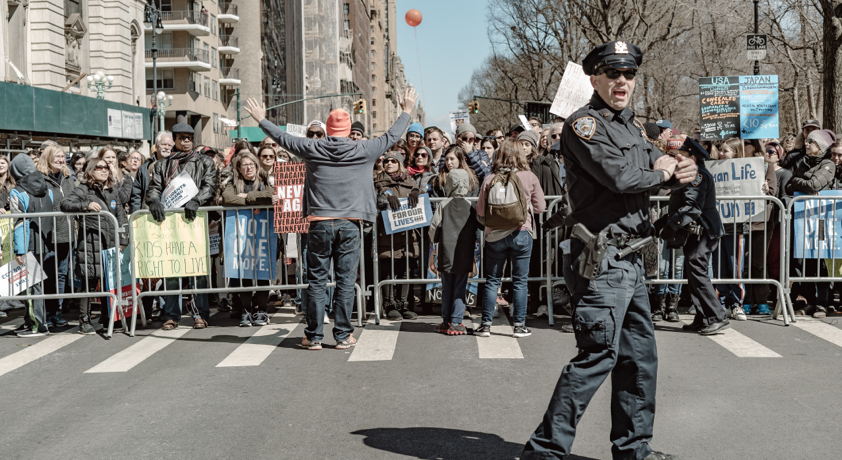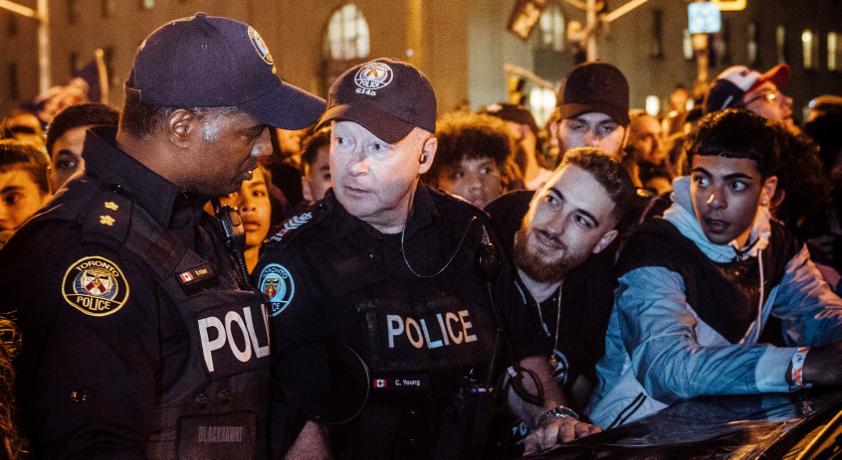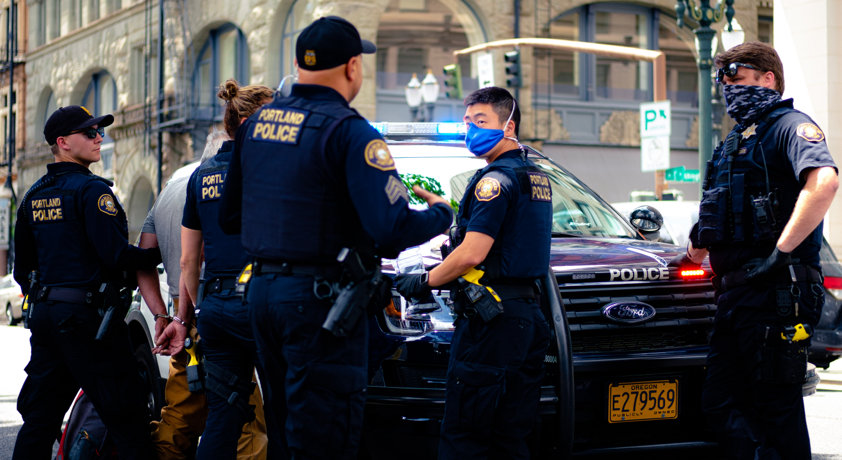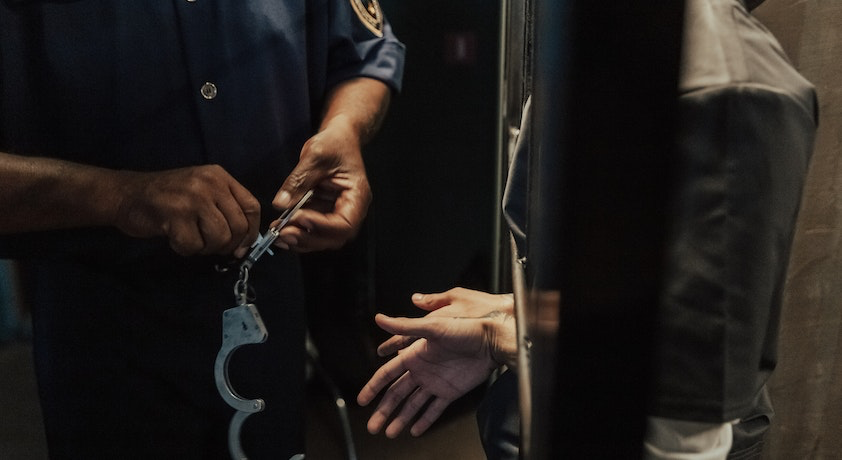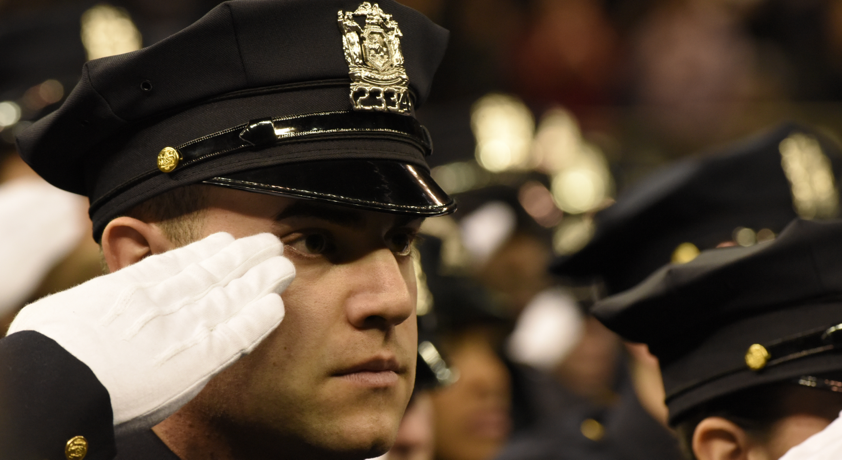Preparing for the Police Officer Selection Process

Police officers have a rewarding, yet demanding, career. Protecting the public and enforcing the law are the core of our justice system, and the police are the backbone of this function. However, the process of becoming a police officer is not a simple one. There is a detailed, multi-step process involved which can take six months or even longer. Our guide will outline what to expect during the selection process and how you can prepare.
The Basic Requirements
To become a police officer, you have to be physically fit and mentally sound. You also need a certain level of education and knowledge of the criminal justice process. Every police agency has its own specific requirements, which vary between federal agencies, individual state agencies, and even different cities and municipalities.
The steps can vary not only in their specifics but in the order in which they take place. While these variations can in some cases be significant, there are general qualifications and steps that are observed by most agencies across the United States.
In order to become a police officer, you will need at minimum a high school diploma and you will likely attend a formal police academy. Many officers go on to pursue college degrees in criminal justice or law enforcement fields. These degrees can be very helpful as you pursue your career and seek to advance through the ranks.
Police officers also must be at least 21 years of age in most areas, be citizens of the United States and have a valid driver’s license. Some departments may hire students out of high school, but require continual training and education until they reach the age of 21 before becoming an officer. While it is not always a prerequisite, completing a degree program in law enforcement, criminal justice, or a related field is recommended as it can result in more rapid advancement in your career.
Formal training is usually done through a police academy. These programs are several months long and are a combination of practical hands-on training and classroom education. The goal of this training is to prepare you for active duty as an officer in the field. While attending the police academy you will learn concepts such as:
- Constitutional law
- Crime scene investigation
- Reporting and paperwork
- Civil rights issues
- Constitutional, federal, state, and local law
- Criminal psychology
- Risk assessment, arrest procedures, and patrolling
- Emergency first response
- First aid training and CPR
- Firearm and self-defense training
- Traffic directing
Preparing for the Written Exam
The first step in preparing for all of your exams is to take a deep breath and relax. You have presumably done all the work and studying and you know your stuff. Be confident in that. Next, gather all the information you can about the exam. Your recruiter, your agency’s HR department, and their website will likely have information about what the test will cover. Brush up on the areas in which you are weakest.
Spend some time at the library improving your vocabulary and math skills. Read regularly and often. If you don’t like reading, now is a good time to start enjoying it. Read newspapers and keep up on local, state, and federal legal issues. Observe everything and train yourself to think critically and outside the box. This test is all about how you look at life, understand the law, and exercise good judgment and critical thinking skills.
Preparing for the Physical Agility Test
Police offers have to be in top physical condition to effectively perform their duties. The physical agility test will make sure that you have the skills and are in shape to do the job. Many candidates view this test as the biggest hurdle to entry into the profession and it can be intimidating.
Make no mistake: this test will push you to your physical and mental limits to be sure that those who are selected are truly up to the task of one of the most demanding and dangerous professions there is. As with the written and other exams, the first step is to reassure yourself that you can do this. Be confident in your abilities.
Show-up Prepared
Do your research on what will be covered in the test. Check the department’s website and contact them for information for details about the test. At a minimum, you will be asked to complete a timed run of at least 1.5 miles within a pre-defined amount of time, which can be anywhere from 15 minutes to 20 minutes. In addition to this, you will typically be required to complete sprint tests ranging from 50 to 100 yards in under 60 to 90 seconds. You may also have to climb a fence or wall.
Next, you will likely have to complete an obstacle course that is built to your physical strength, and agility. This will be a very demanding effort. You may ask the agency if you can access the course to train. If you can, you should absolutely take the opportunity to do so. If access is not provided, find out what obstacles may be included and do what you can to build representations in an area where you can work on it until you can do it with your eyes closed, in the dark, without a second thought.
Finally, you’ll have to perform a calisthenics test which can include sit-ups, push-ups, bench presses, stretching, and other general physical exercises. As with the other aspects, train your body in all aspects of calisthenics and physical fitness.
Train, train, train: that’s how you prepare for this section of the test. Never stop, and never let up.
Preparing for the Oral Interview
The oral portion of your police interview process will usually be delivered in two parts. The first will be an evaluation of your personality and whether or not you would make a good officer. It will test your social skills, personal relations abilities, friendliness, and diplomacy, all essential elements to being a police officer and being out among the community. Preparing for this section is on you. It’s important to be honest with yourself regarding your own social skills and personal interactions and if you have any areas where you need to work on things. Talking to friends and family can help, as can reflecting on conflicts you’ve had with neighbors or in the public.
The second portion will test your problem-solving, critical thinking, and judgment as well as conflict resolution. You will need to demonstrate that you know, for example, when force is an appropriate response and the degree to which force should be used. Make sure you are well versed in what is known as the Force Continuum, which progresses from simply being present all the way up through verbal commands to physical restraint to deadly force.
Medical and Psychological Exams
Most agencies will require you to go through medical and psychological evaluations to ensure that you are physically and mentally capable of handling the stresses of the job. Police officers are at higher risk for heart disease, injury, and even cancer than other professions, so you’ll want a clean bill of health. If you have any bad habits like smoking or eating poorly, now is the time to change that. The best way to prepare for your medical exam is to live a healthy life and listen to your doctor.
The psychological exam will test your mental and emotional stability and well-being. There really is no way to prepare for an evaluation like this. The best approach you can take is to be open and honest with the psychologist, therapist, or evaluator. Stay calm and be confident. Be prepared to answer frank and personal questions in a forthright and direct manner.
Background Checks and Investigation
As part of the selection process, you will have to undergo a fairly thorough background check and investigation. If you’ve done nothing wrong, you have nothing to worry about for this part. The best way to prepare for this is simply to be aware of any potential red flags that might show up, and be prepared to address them. Don’t try to hide mistakes you may have made. Address them head-on and be honest. Don’t make excuses for bad behavior but own up to your mistakes and highlight ways that you may have improved. Understand you could be asked about anything from driving record violations to credit problems.
Polygraph Exam
The polygraph exam will consist of a pre-test interview where you will discuss the method of testing, how any dishonesty will be revealed, and that the examination will be completely professional. If you go into this exam with the intent to be honest and forthright, you should be completely at ease, with no worries about the outcome.
The test itself will then follow. It can take up to a half-hour and you will be asked to sign a waiver and informed as to how the test will be used. You may be asked questions about your driving record, criminal history, any drug use, or prior employers. The most important way to prepare for this exam is to be thorough in your application. Don’t reveal any new information that was omitted in your application as this could flag you as having something to hide. Remember that the polygraph operator is a trained interrogator whose job is to probe for things that could disqualify you. They are not your ally, no matter how much they may claim to have empathy for your situation. Be honest, but stick to the facts and stick to what has already been revealed.
Summary of Disqualifying Issues
There are certain issues that will disqualify you from becoming a police officer. These may vary from department to department, but there are certain general universals. In addition, agencies may use their own discretion when they look at past issues, and there may be a sliding time frame based on how severe a past infraction may have been. Illegal drug use is a disqualifier, for example, but an agency may let marijuana use of a decade past go, whereas if it has been within the past month, you’ll probably be disqualified.
Other disqualifying elements include having been convicted of a felony, incidents of domestic or sexual abuse, major problems with your driving record including reckless driving or a conviction of DUI, and your credit history if you have severe financial problems or very bad credit.
